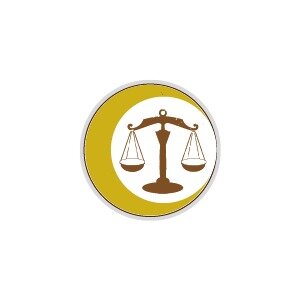Best Landlord & Tenant Lawyers in Kumasi
Share your needs with us, get contacted by law firms.
Free. Takes 2 min.
Free Guide to Hiring a Real Estate Lawyer
List of the best lawyers in Kumasi, Ghana
About Landlord & Tenant Law in Kumasi, Ghana:
Landlord & Tenant law in Kumasi, Ghana governs the rights and responsibilities of both landlords and tenants in the leasing of residential and commercial properties. It outlines the obligations of each party, the terms of the lease agreement, and procedures for disputes and evictions.
Why You May Need a Lawyer:
You may need a lawyer in Landlord & Tenant matters in Kumasi, Ghana if you are facing issues such as eviction, lease disputes, maintenance problems, rent arrears, or lease renewal negotiations. A lawyer can help you understand your rights, navigate legal procedures, and represent your interests in court if necessary.
Local Laws Overview:
Key aspects of Landlord & Tenant laws in Kumasi, Ghana include the requirement for written lease agreements, regulations on rent increases, procedures for eviction, and the rights of tenants to a habitable living space. It is essential to be familiar with these laws to protect your rights as a tenant or landlord.
Frequently Asked Questions:
1. Can a landlord increase rent at any time?
No, landlords in Kumasi, Ghana are required to provide written notice of any rent increase at least one month before the new rate takes effect, and the increase cannot exceed a certain percentage set by law.
2. How much notice does a landlord need to give before evicting a tenant?
Landlords must give tenants at least one month's notice before evicting them for non-payment of rent or violation of the lease agreement. The notice must be in writing and state the reason for eviction.
3. What are a tenant's rights regarding repairs and maintenance?
Tenants have the right to a habitable living space in Kumasi, Ghana, and landlords are responsible for maintaining the property in good repair. If a landlord fails to make necessary repairs, tenants may be able to withhold rent or seek legal remedies.
4. Can a landlord enter the rental property without permission?
Landlords must provide reasonable notice before entering a rental property in Kumasi, Ghana, except in cases of emergency. Tenants have the right to privacy and the quiet enjoyment of their home.
5. What can a tenant do if their landlord refuses to return their security deposit?
If a landlord fails to return a tenant's security deposit in Kumasi, Ghana, the tenant may file a complaint with the Rent Control Department or seek legal assistance to recover the funds.
6. Are there any restrictions on the eviction of tenants in Kumasi, Ghana?
Landlords in Kumasi, Ghana can only evict tenants for specific reasons outlined in the law, such as non-payment of rent, breach of the lease agreement, or illegal activities on the property. Evictions must be processed through the Rent Control Department or the courts.
7. Can a landlord terminate a lease before it expires?
A landlord can terminate a lease before it expires in Kumasi, Ghana if there is a valid reason, such as non-payment of rent, breach of the lease terms, or the landlord's need for the property. The terms of termination should be outlined in the lease agreement.
8. What rights do tenants have if the property is sold to a new owner?
If a rental property in Kumasi, Ghana is sold to a new owner, existing tenants are entitled to continue living in the property under the existing lease agreement. The new owner must honor the terms of the lease until it expires.
9. Can a tenant sublet the rental property to another person?
Tenants in Kumasi, Ghana may sublet the rental property to another person with the landlord's written consent, unless it is expressly prohibited in the lease agreement. The original tenant remains responsible for rent payments and any damages caused by the subtenant.
10. How can a landlord enforce the terms of the lease agreement?
Landlords can enforce the terms of the lease agreement in Kumasi, Ghana by seeking legal remedies through the Rent Control Department or the courts. This may include terminating the lease, recovering unpaid rent, or evicting the tenant for breach of contract.
Additional Resources:
For legal assistance and information on Landlord & Tenant matters in Kumasi, Ghana, you can contact the Rent Control Department, the Ghana Legal Aid Commission, or seek help from a qualified lawyer specializing in property law. These resources can provide guidance and support for resolving issues related to rental properties.
Next Steps:
If you are facing legal issues or disputes related to Landlord & Tenant in Kumasi, Ghana, it is recommended to seek advice from a lawyer with experience in property law. A lawyer can help you understand your rights, negotiate with the other party, and represent you in court if necessary. Be sure to gather all relevant documents and information pertaining to your case before meeting with a lawyer to ensure a thorough evaluation of your situation.
Lawzana helps you find the best lawyers and law firms in Kumasi through a curated and pre-screened list of qualified legal professionals. Our platform offers rankings and detailed profiles of attorneys and law firms, allowing you to compare based on practice areas, including Landlord & Tenant, experience, and client feedback.
Each profile includes a description of the firm's areas of practice, client reviews, team members and partners, year of establishment, spoken languages, office locations, contact information, social media presence, and any published articles or resources. Most firms on our platform speak English and are experienced in both local and international legal matters.
Get a quote from top-rated law firms in Kumasi, Ghana — quickly, securely, and without unnecessary hassle.
Disclaimer:
The information provided on this page is for general informational purposes only and does not constitute legal advice. While we strive to ensure the accuracy and relevance of the content, legal information may change over time, and interpretations of the law can vary. You should always consult with a qualified legal professional for advice specific to your situation.
We disclaim all liability for actions taken or not taken based on the content of this page. If you believe any information is incorrect or outdated, please contact us, and we will review and update it where appropriate.










